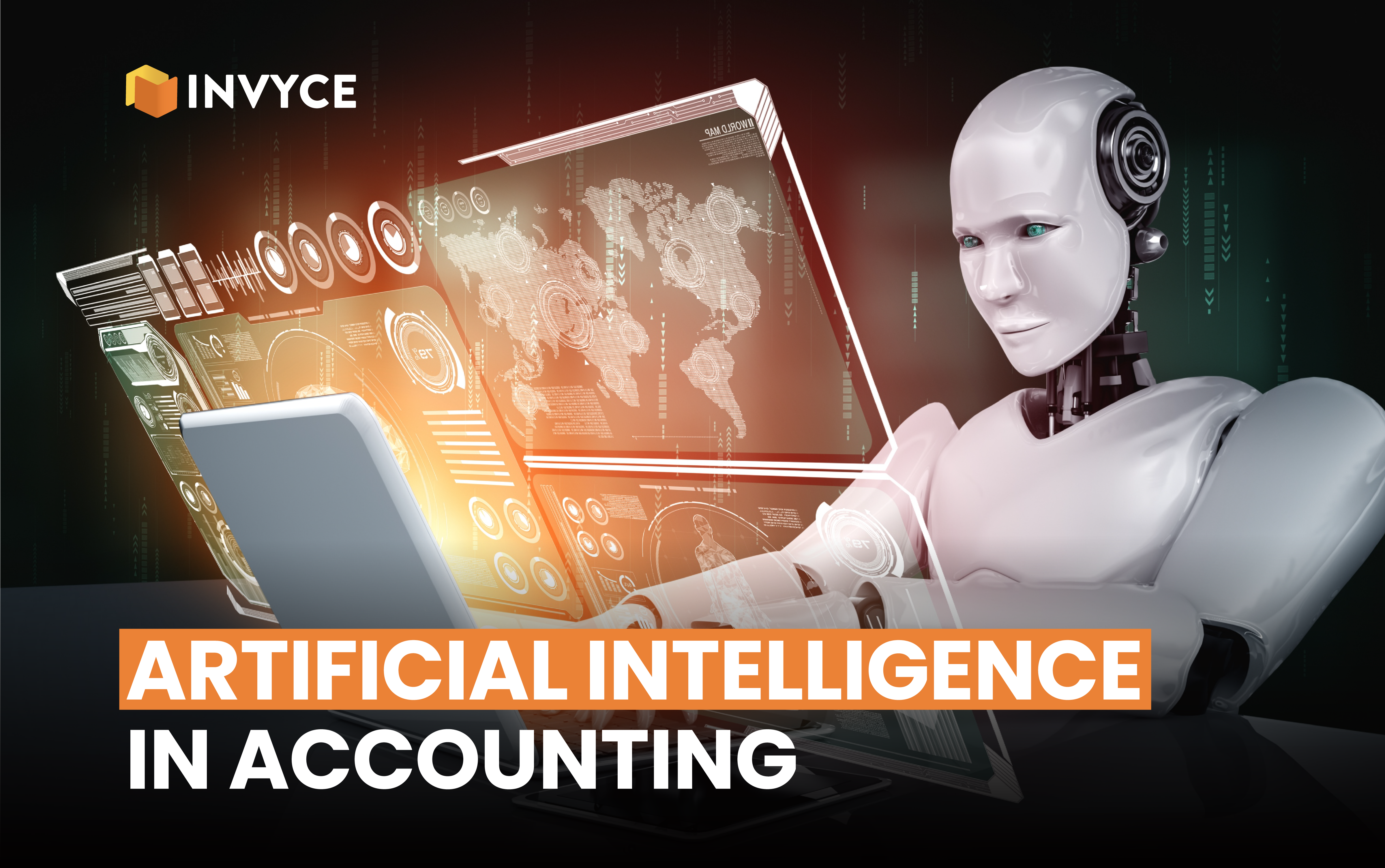14 May

Artificial Intelligence (AI) is significantly transforming the accounting profession, enhancing both the efficiency and accuracy of various accounting tasks. This transformation is reshaping traditional accounting practices, providing numerous benefits and presenting challenges that need to be navigated. In this article, we talk about the key benefits of AI in accounting and its impact, etc.
Key Benefits of AI in Accounting
Automation of Routine Tasks
AI excels in automating routine and time-consuming tasks like data entry, invoice processing, and reconciliations. This automation frees up accounting professionals to focus on more strategic and high-value activities.
Enhanced Data Analysis
AI’s ability to process and analyze vast amounts of data far exceeds human capabilities. It identifies patterns and anomalies that might be missed otherwise, enabling more informed decision-making and predictive analytics.
Improved Compliance and Risk Management
AI helps in maintaining compliance with regulatory changes by automating the monitoring and analysis of these changes. It can also detect irregularities and potential risks, enhancing the overall governance and risk management framework of organizations.
Streamlined Auditing Processes
The auditing process is made more efficient with AI, as it can analyze large datasets quickly and accurately, reducing the time needed for audit activities and increasing the reliability of audit results.
Real-time Financial Reporting
AI-powered systems provide real-time insights into financial data, allowing businesses to make swift and accurate decisions. This timeliness is crucial for dynamic and competitive business environments.
Challenges and Considerations
Integrating AI into existing accounting systems can be challenging, especially with legacy systems that may not be compatible with the latest AI technologies. This integration requires substantial resources and technical expertise.
Data Security and Privacy
Handling sensitive financial data with AI solutions raises significant concerns about data security and privacy. Protecting this data against unauthorized access and breaches is paramount.
Skill Gaps and Training Needs
There is often a significant gap in AI knowledge among accounting professionals. Bridging this gap through training and development is essential for organizations to leverage AI effectively.
Ethical and Regulatory Implications
The use of AI in accounting must be managed with careful consideration of ethical implications, such as potential biases in AI algorithms and the impact on employment. Regulatory standards also need to keep pace with technological advancements to ensure proper governance.
Resistance to Change
The adoption of AI can be met with resistance from within the workforce due to fears of job displacement and reliance on automated systems. Managing this change effectively is crucial for the smooth implementation of AI technologies.
Sustainability and Environmental Impact
.The application of AI in accounting not only optimizes financial processes but also aligns with broader sustainability goals that many organizations are increasingly prioritizing. AI enhances the capacity for businesses to engage in sustainable practices by improving the efficiency of resource use and reducing waste.
Resource Efficiency
AI-driven systems can optimize the use of resources across departments by analyzing operational data to identify inefficiencies and areas where resources can be conserved. This contributes to lower operational costs and a smaller environmental footprint.
Energy Management
Through predictive analytics, AI can forecast energy needs and suggest adjustments to reduce energy consumption in real time. This not only saves costs but also aligns with sustainability goals by minimizing the environmental impact of excessive energy use.
Waste Reduction
AI assists in accurately forecasting supply needs, which can help prevent overproduction and excess inventory, both of which contribute to waste. Moreover, AI can optimize logistics to reduce carbon emissions associated with transportation.
Sustainable Decision-Making
By providing detailed insights into various strategies’ financial and operational impacts, AI enables organizations to make decisions that consider long-term sustainability alongside profitability. This helps companies commit to sustainable business practices that contribute to economic stability and environmental conservation.
Reporting and Compliance
AI improves the accuracy and timeliness of reporting on sustainability metrics, which is crucial for regulatory compliance and communicating with stakeholders who prioritize environmental, social, and governance (ESG) criteria. Using AI to automate data collection and analysis ensures that sustainability reports are accurate.
Comprehensive and Reliable.
Accounting will be revolutionized by AI by increasing operational efficiencies, improving accuracy, and offering deeper analytical insights. AI in accounting requires careful consideration of the integration challenges, skills required, and ethical concerns to harness its benefits fully.
Conclusion
In the accounting field, artificial intelligence enhances efficiency, accuracy, and strategic decision-making. As AI can automate routine tasks and provide in-depth data analysis, it also introduces challenges such as data security concerns, skill gaps, and ethical concerns. To fully utilize AI’s potential in accounting, businesses must integrate it carefully, train continuously, and adhere to regulatory and ethical standards. AI can be used to improve both operational and environmental performance by integrating it thoughtfully.
Marjina Muskaan has over 5+ years of experience writing about finance, accounting, and enterprise topics. She was previously a senior writer at Invyce.com, where she created engaging and informative content that made complex financial concepts easy to understand.
Related Post
Copyright © 2024 – Powered by uConnect



Marjina Muskaan